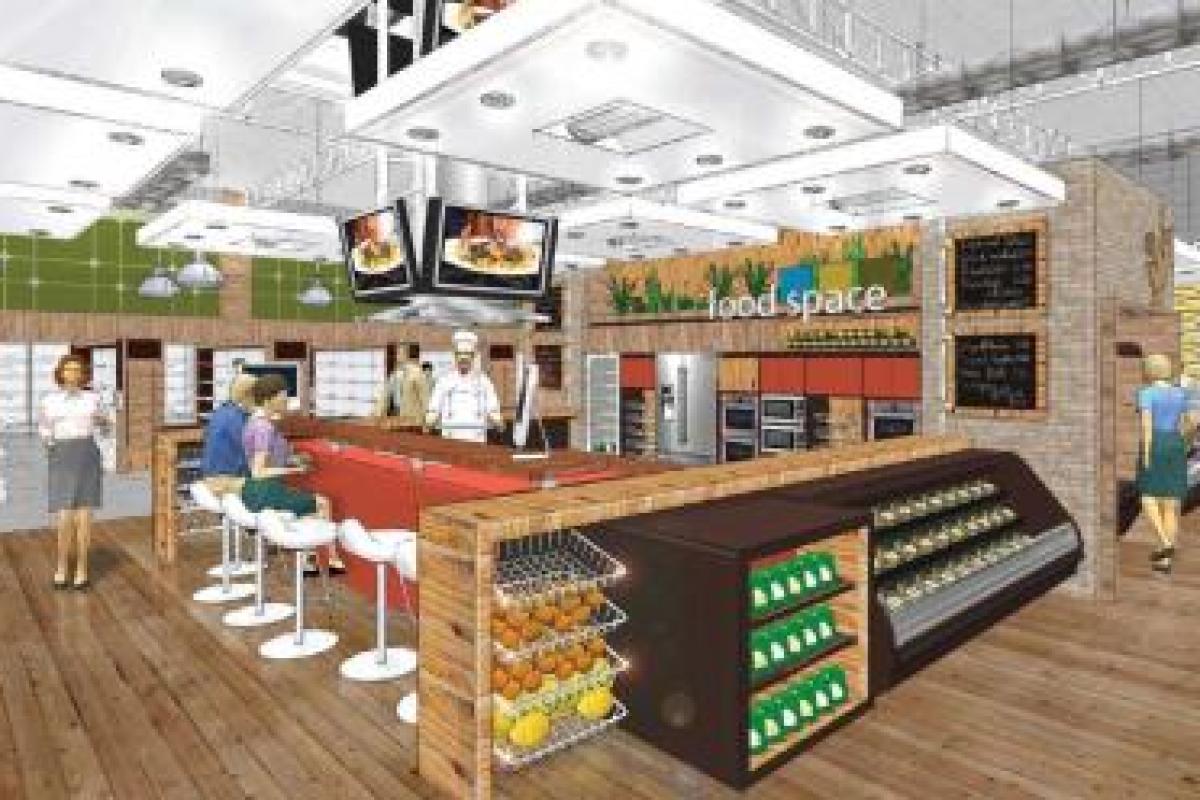When I want to cook a great dinner at home, I head straight to Marks & Spencer’s food store. M&S’s Cook range of premium quality, organically farmed self-assembly dishes makes entertaining easy.
Not only do they bring together all the ingredients, fresh and locally sourced, but there is an instore tasting kitchen and even a cafe where I can try a full meal if I have time.
For packaged goods, I always trust Waitrose, anything with their brand has to be good.
Whether its the low-priced essentials, or the premium treats, they have everything I need and often with more variety and change too.
Same with Trader Joes in USA, which is a great community store. Fabulously designed products, usually with a twist on conventional themes, and delivered with fantastic human and fun service.
What amazes me is why so many retailers associate the phrase “private label” with low-cost and low-quality store-branded substitutes for the real thing.
Private labels started in a big way in Germany. They reinvented the shopping experience around everyday accessible stores, as an alternative to the department store food halls which preceded them. But thinking of them as “discounters” and their products as cheap imitations is completely wrong.
When I want great bread my first stop is Lidl’s instore bakery, fantastic wholegrain bread, and you can watch it being made. If I want to cater on a big scale, I can head to Metro, a large cash and carry network, which has developed the finest range of made-to-order gourmet food, perfect for events and parties. I also like browsing in Aldi, the see their latest offers on all kinds of lifestyle goods, things I never imagined I needed. But love. Same with Tchibo (just opened in UAE), and the coffee’s perfect too.
Time to rethink the potential of private labels
“Private labels” are typically a retailer’s own branded version of popular products. They used to be seen as cheap and generic, sometimes as low-priced imitators of classic brands. That old mindset has changed.
Supermarkets now offer their own gourmet food ranges as good as restaurants, or even better when you can assemble them at home. They can bring together “solutions” from multiples categories under the same brand. They can offer services, such as purchase advice or after-sales support, complimentary services and more. And just like Netflix is able to use its deep knowledge of people and their behaviours to personalise its movies and suggestions, so retailers can leverage loyalty card data and instore tracking to offer more relevant and personal solutions.
Compare this to classic brands – like Kellogg’s or Heinz – they never get to meet their consumers, or have data on their individual behaviours. They cannot create branded in-store environments that allow human engagement, or extend beyond their branded packaging. Yes they have brands of heritage and expertise, available n multiple places, and supported by blockbuster advertising. However the difference in quality is little, and many brand owners even make the private label alternatives too.
“Private labels” have become more effective than classic brands – and with a little nurturing have the opportunity to innovate and grow in ways that their previously esteemed rivals cannot. They can also be much more profitable, flexible and value-creating for their owners, the retailers.
How private labels can drive innovation and accelerate growth
So what are some advantages of private labels over classic brands?
- They can focus more on the needs of the target consumer, leveraging the intelligence of the store’s loyalty cards and transactional data to understand consumer behaviours and preferences. Classic brands have none of this insights, desperately trying to buy retailer data to help them.
- They can be more sustainable and trusted. They enable direct contact with manufacturers and suppliers, reducing the distance “field to fork”, and improving transparency and traceability. Whole Food Markets are a great example with its partner farms and kitchens.
- They promote the retailer brand in tangible and innovative ways, enhancing the relevance, the value and reputation of the retailer. Retail brands have transformed in recent years to be much more human, relevant and engaging.
- They can be more profitable. The ability to avoid comparison of prices with the same products in other retailers means less focus on price battles, and also price matching by consumers across stores.
- They are faster and easier to manage. There is more speed, control and flexibility, to get new ideas to market faster, to adapt pricing to changing situations, and learn quickly from consumer response.
- They can form more comprehensive “solutions”. They can be complimented by additional products, for example in adjacent categories – this might be all the ingredients for a great meal, or dinner party, or even a complete home, like IKEA.
- Stores have transformed their customer service levels, allowing them often in partnership to add all kinds of own-label services to enhance their own-label products. Consider Boots’ opticians or CVS Health’s instant clinics.
- They can help retailers grow beyond their stores. Sonae, Portugal’s leading retailer, sells it own label range through a wide variety of other stores in other markets – an instant portfolio for other retailers to share in the benefits.
- They can be more profitable – lower costs due to fewer intermediaries and commissions, economies of scale and as a result potentially higher margins. They might even be simply better, and you should charge more.
Insights and ideas:
Amazon: Amazon’s Big Private Label Push, and Why Name Brands Matter Less Nowadays
Amazon is significantly expanding its usage of private labels. According to the Wall Street Journal Amazon will soon be promoting and selling brands like Happy Belly (nuts, trail mix, tea), Presto! (household goods), and Mama Bear (baby items). Meanwhile, the company already has been stealthily selling at least seven in-house apparel brands that many customers probably have no idea are clothes made exclusively for the site.
Belk’s: What’s a ‘private label brand’ and what’s that mean? We take a look at Belk’s
The Charlotte-based department store has 22 private label brands … For major department store retailers like Belk, private label brands are critical: They fill in market gaps left open by national brands. (Are Southern women craving brightly colored T-shirts with preppy anchor logos at a modest price? Belk will make them, if no one else is.) Retail analysts say companies like Belk keep more of the sales dollars from private label brands because national-brand middlemen are eliminated, and stores can choose how and when to mark down items.
Kroger: Grocers’ private-label goods — increasingly high end with gourmet ingredients
Kroger and some other grocery retailers are seeing a growing share of sales come from these private-label products, and shoppers should expect to keep seeing new items and private brands pop up on store shelves. Private-label sales took off in the penny-pinching Great Recession, but today the private-label products you see will increasingly be high-end, with gourmet ingredients, or will be found on the store perimeter, where health-conscious shoppers are hunting for fresh produce and meat.
Read more
- Amazon: 25 years of innovation now including own label fashion, food and more
- Rackuten Ichiba: retailing the Japanese way, selling everything from crabs to kimonos
- Sonae: the Portuguese retailer taking its own label products to other stores
- Futurestore: how the retail sector is changing, and the most disruptive innovators
- Is the future private labelled? by Edited
- The Next Wave of Private Label by LEK
- The Private Label Revolution by PwC
- 10 steps to innovate private labels by AT Kearney
- How packaging can help private labels by LEK
-
Deciding to fight or play in private label arena by Bain
This was first seen on The Genius Works



